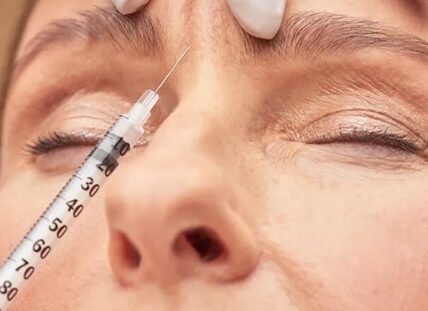Key Takeaways
- Comprehensive dental plans are essential for maintaining employee health and satisfaction.
- Regular dental check-ups reduce the risks of serious health issues.
- Wellness culture is enhanced with robust employee benefits plans.
Why Dental Health Matters in the Workplace
In today’s fiercely competitive job landscape, companies are increasingly innovating their benefits offerings to attract and retain top talent. Among these benefits, comprehensive dental plans stand out as a pivotal component. But why does dental health carry such weight, often considered peripheral to other medical benefits? Healthy teeth and gums are not solely about appearance; they are fundamental in reducing the risk of systemic conditions, including heart disease and diabetes. This interconnection between dental health and broader health metrics is often underemphasized, yet it plays a critical role in an employee’s overall productivity and ability to perform. A critical exploration emphasizes that oral hygiene plays a crucial role in preventing such chronic ailments, underscoring the necessity of dental benefits in fostering a healthier workforce. Employers keen on amplifying workforce satisfaction and health should consider delving into the expansive benefits of such programs on https://www1.deltadentalins.com/employers.html, a resource dedicated to comprehensive benefit strategies.
Diverse Plan Options for Varied Needs
The vast array of personal healthcare needs underscores the importance of offering diverse dental plans. Every employee is different, not only in their roles within the organization but also in their health requirements. A standardized approach may leave gaps that undermine the goal of comprehensive coverage. Therefore, presenting various dental plans is key to addressing everything from routine check-ups to major dental work. This adaptability ensures that the workforce is covered comprehensively, fostering peace of mind. The importance of such health plans can’t be overstated, and it was prominently featured in an article highlighting how adapting benefits to meet the demands of different age groups can make an impactful difference. Furthermore, as organizations embrace diverse and inclusive hiring practices, the need for diverse benefits becomes even more pronounced. Understanding the nuances between employees’ needs can lead to more substantial, more cohesive health planning, ensuring no employee feels left out or uncared for.
The Impact of Dental Benefits on Employee Well-Being
The resultant impacts on employees’ quality of life are significant in offering dental benefits. This benefit directly translates into fewer health-related issues, resulting in reduced sick days and higher employee productivity. Dental benefits are often viewed as a preventive measure, helping avert crises before they escalate into more significant health concerns. By ensuring that employees have access to essential dental services, companies minimize the potential for stress and anxiety that often accompanies untreated oral conditions. Additionally, less time spent worrying about health issues means more time and energy can be devoted to workplace tasks, making this benefit a win-win for employers and employees. By prioritizing their employees’ dental health, companies demonstrate concern for long-term employee well-being, encouraging loyalty and dedication to the organization. Creating an environment that promotes health inevitably leads to a more satisfied and engaged workforce.
How Dental Plans Improve Company Culture
Corporate success is increasingly intertwined with its company culture’s strength, amplified through comprehensive benefits such as dental plans. These offerings signify to employees that their employer proactively cares for their well-being, leading to increased trust and a sense of belonging within the organization. When employees feel valued and secure, it elevates their job satisfaction and loyalty, making them more inclined to contribute positively to the company culture. Moreover, this environment of care and mutual respect fosters a workplace where employees want to stay, decreasing staff turnover and the related expenses of ongoing hiring and training. Employers integrating such benefits into their culture are preferred workplaces amidst the ever-competitive business world. Furthermore, a vibrant company culture, underpinned by thoughtful benefits like dental plans, becomes a powerful tool for employee advocacy, where workers voluntarily become brand ambassadors, promoting the organization as an ideal workplace.
Choosing the Right Plan for Your Workforce
Choosing the right dental plan involves a nuanced understanding of the workforce. Employers must consider factors such as their employees’ age, family status, and any specific dental needs. For instance, families might prioritize orthodontic coverage for their children, while older employees might value prosthodontic care. Evaluating these factors aids employers in crafting a benefits plan that offers meaningful protection and access to necessary health services. This approach ensures every employee feels catered to and adequately covered, fostering a supportive atmosphere where personal health needs are met. The right dental plan is a pillar of employee well-being, where offering choices acknowledges and respects individual preferences and challenges. By engaging employees in a dialogue about their needs, employers can better design plans that meet, anticipate, and address future requirements, reinforcing a robust health safety net for all.
Regular Dental Check-Ups and Their Long-Term Benefits
Incorporating regular dental check-ups into employee health plans is a forward-thinking strategy with long-term benefits. These check-ups serve as preventive measures, catching potential dental issues before they forecast costly interventions. Employers who advocate for regular dental visits ultimately contribute to lower overall medical claims against the dental plan. This preventive care approach saves money and reduces the necessity for more extensive treatments later, which translates into fewer days off work for recovery from such procedures. The outcome is a healthier, more vibrant workforce with decreased medical expenses, which benefits the company through reduced healthcare spending and enhanced productivity. Regular check-ups also create an opportunity for employees to become more proactive about their oral health, leading to continued education and awareness about the impacts of dental care on overall health and longevity.
Looking Towards the Future of Employee Benefits
The future of employee benefits is progressively steering towards a holistic wellness paradigm, with dental benefits poised to play a central role. As awareness regarding the nexus between dental health and general health grows, employers recognize that a healthy workforce benefits its members and is a strategic advantage for the organization. By aligning dental benefits with overarching health and wellness goals, companies can create a nurturing environment that supports employee growth and satisfaction. This forward-thinking approach meets the current well-being needs and sets the groundwork for sustained mutual success. As these trends continue, flexible well-being packages incorporating dental health will likely become standard, shifting the focus from treatment to prevention, illustrating a company’s steadfast commitment to its employees. By leading with health-forward initiatives, organizations pave the way for innovation in employee benefits, effectively setting the standard for a health-conscious future in the corporate world. Encouraging employees to engage in these comprehensive benefit programs reflects a progressive approach to human resource management that feels increasingly vital in a rapidly evolving global landscape.
Read more: https://crunchtotech.com/
















